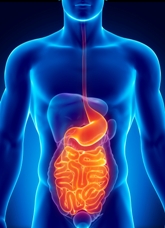Medicines that reduce heartburn may also increase the risk of gastrointestinal infections
From The Washington Post:
Most heartburn drugs reduce the production of the stomach acids that cause the burning pain. Might this lower acidity also have less desirable effects?
The study The researchers analyzed data on 564,969 people, most of them 20 to 80 years old, including 188,323 who had been prescribed acid-suppressing medications. These drugs included proton-pump inhibitors (such as Nexium, Prilosec and Prevacid) and histamine blockers, also called H2-receptor antagonists (such as Tagamet, Zantac and Pepcid). None of the participants had inflammatory bowel disease or bowel cancer. Over a span of about 14 years, 22,705 positive test results for gastrointestinal infections attributed to C. difficile, campylobacter, salmonella, shigella or E. coli bacteria were reported. People who took acid-suppressing medications were about three times as likely to have had a GI infection as were those who did not take the heartburn drugs. Risk was highest for C. difficile and campylobacter infections, with accompanying abdominal pain and diarrhea. The study authors noted that stomach acid may not kill these bacteria but that taking acid-suppressing drugs may alter the gut microbiome — the balance of microbes in the intestine — and increase risk for infection.
The researchers analyzed data on 564,969 people, most of them 20 to 80 years old, including 188,323 who had been prescribed acid-suppressing medications. These drugs included proton-pump inhibitors (such as Nexium, Prilosec and Prevacid) and histamine blockers, also called H2-receptor antagonists (such as Tagamet, Zantac and Pepcid). None of the participants had inflammatory bowel disease or bowel cancer. Over a span of about 14 years, 22,705 positive test results for gastrointestinal infections attributed to C. difficile, campylobacter, salmonella, shigella or E. coli bacteria were reported. People who took acid-suppressing medications were about three times as likely to have had a GI infection as were those who did not take the heartburn drugs. Risk was highest for C. difficile and campylobacter infections, with accompanying abdominal pain and diarrhea. The study authors noted that stomach acid may not kill these bacteria but that taking acid-suppressing drugs may alter the gut microbiome — the balance of microbes in the intestine — and increase risk for infection.
Who may be affected?
People using acid-suppressing drugs to combat the painful feeling that occurs when stomach acid backs up into the esophagus. Some foods, alcohol and medication can cause heartburn, as can being pregnant. Chronic heartburn, occurring several times a week, could indicate a more serious health problem — gastrointestinal reflux disease, or GERD. Surveys have shown that 30 to 40 percent of Americans have heartburn at least once a month, and 10 percent have it almost daily.
Caveats
Study data included prescription medications only; whether participants used over-the-counter heartburn drugs was not reported.
Read the full media article on The Washington Post website
You can read the journal article in the British Journal of Clinical Pharmacology
